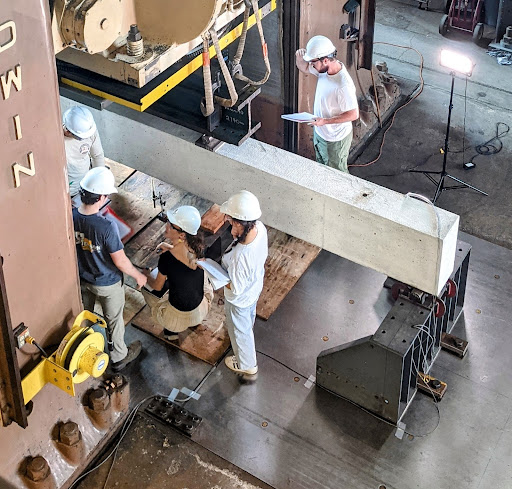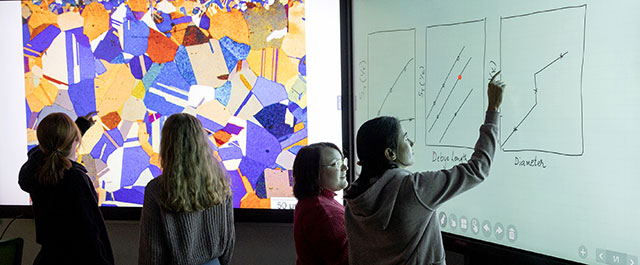Civil Engineering (M.S., Ph.D.)
Graduate students in Civil Engineering conduct experiments across a breathtaking range of scales, using electrokinetics, nanoparticles, sensor and communications technology, and advanced physics and mechanics while overseeing some of the world's largest and most advanced structural testing and simulation facilities.
Lehigh's structural testing facilities are the largest in North America and enable research in earthquake engineering, multi-hazard mitigation, fiber reinforced composites, fatigue and fracture, development of smart structures, shipbuilding, and infrastructure reliability, maintenance and life-cycle performance.
Graduate alumni teach in more than 60 universities worldwide and excel in private sector and government. Faculty travel the world to give advice on earthquake-resistant structures, and on flood and erosion control. Students travel to give presentations at conferences, and to conduct field demonstrations of new technologies.
The department's ATLSS (Advanced Technology for Large Structural Systems) Research Center houses the largest three-dimensional dynamic testing machines in North America, along with specialized earthquake-resistant testing facilities for real-time dynamic testing.
Sponsors of Research Projects
Research in the CEE department is sponsored by many government and private sources, including the National Science Foundation, the U.S. Navy, the Department of Energy, and the Pennsylvania Infrastructure Technology Alliance.
Affiliated Lehigh Research Centers, Laboratories and Institutes
- Center for Advanced Materials and Nanotechnology
- Center for Photonics and Nanoelectronics
- Energy Research Center
- Advanced Technology and Large Structural Systems (ATLSS) Engineering Research Center
- Real Time Multi-Directional (RTMD) National Facility — NSF Network for Earthquake Engineering Simulation (NEES)


